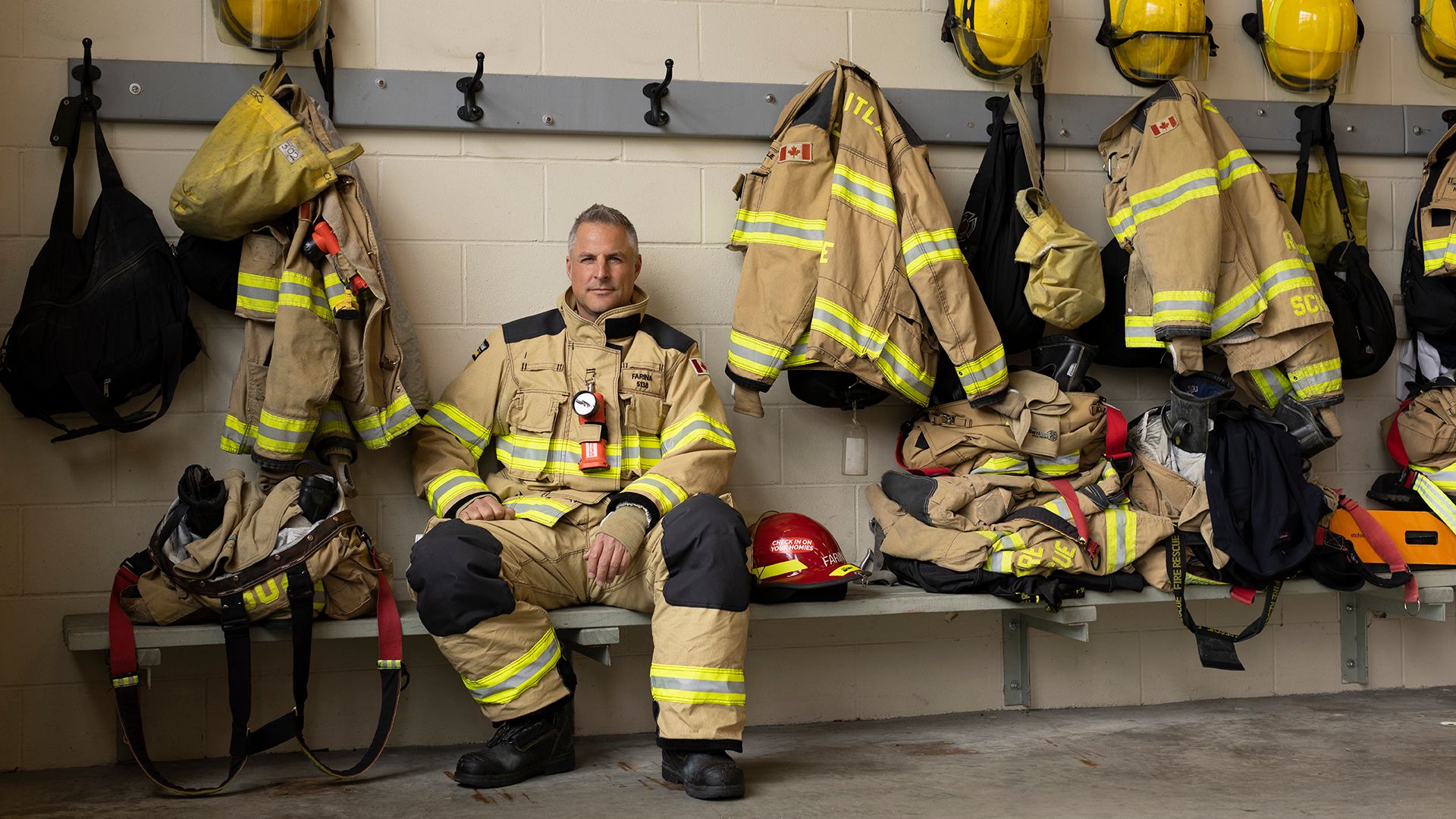

Shoulder to Shoulder: A Resiliency Program Built for First Responders, by First Responders
There is growing evidence that first responders are at a significantly increased risk of poor mental health and suicide.
Although many programs that aim to support these groups already exist, a 2019 report commissioned by Movember and conducted by men’s health researcher Dr. Don McCreary, found a lack of publicly available evidence showing the effectiveness of such programs.
Based on the report, Movember launched the Veterans and First Responders Mental Health Grant Program in September 2020, with the aim of identifying promising mental health or suicide prevention programs and collaborating with those projects to demonstrate their effectiveness through rigorous program evaluation.
One of the projects being supported is the First Responder Resiliency Program (FRRP), developed by Canadian wellbeing organization Blueprint. This upstream mental health support program was built for first responders, by first responders.
After a number of suicides shook the British Columbia firefighter community to its core, there was a call for more education and action – more conversations and the resources needed to have those conversations -- not just at the organizational level, but on the individual level as well.
“Part of the magic is that this program belongs to first responders. The firefighters – it’s their program. The collaboration is probably the most important part of this,” shares Blueprint Co-founder, Dr. Duncan Shields.
The design of the program began by inviting the first responder community to the conversation, interviewing thirty-five firefighters and police officers, from different career stages, to consider their experiences with the various stressors and support that play into their day-to-day lives.
Over the course of four days at Maple Ridge’s Loon Lake, eight first responders come together at this residential retreat for an intensive and transformative 34 hours of resiliency and wellbeing skill development.
“With trauma therapy, you’re actually creating programs with intervention. Considering how you can begin to help people process the trauma that they’ve experienced either in their personal or professional lives. And we look at it as trauma growth, so people can move beyond the trauma into lives that aren’t hindered by the trauma,” explains Blueprint Co-founder, Dr. David Kuhl, “With resilience, it’s focusing on how we can enable people in their social environment, physical, workplace environment, to actually be well in their whole selves. It’s their psychological wellbeing, spiritual, physical wellbeing, and what are some of the skills and tools that we can equip people with, so that they’re not as affected by the trauma that they’re exposed to.”
Participants have shared that after opening up about their personal or professional trauma, a ripple of permission-giving to be completely vulnerable spreads across the entire group as they come to realize that they’re not alone in what they’re feeling.
" Being vulnerable takes great strength. - Steve Farina, VP of the BC Professional Fire Fighters’ Association "
Shane Rivet, Lieutenant for Vancouver Fire, has been through the program and now helps to lead sessions at the retreat. Reflecting on his time at Loon Lake, the impact on his life, and his hope for the future, Shane said, “The hope for myself is that I keep coming back, and giving back to this program, because it has given me so much that I want to give back as much as I can. If you get enough people through this, the ripple effect will move into each department that sends people here, and eventually over time, change the culture.”
Your dollars helped fund the Veterans and First Responders Grant. Donate to help change the face of men's health and learn more about where the money goes at movember.com/impact.
If you or someone you know is in crisis, or needs emotional support we urge you to head to movember.com/getsupport for crisis support options. To speak with someone immediately, contact your local 24-hour support service.